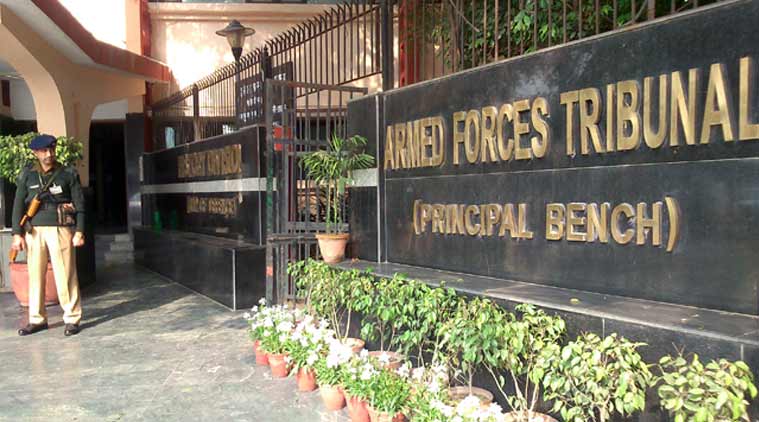Stay updated with the latest - Click here to follow us on Instagram
Work in Armed Forces Tribunals comes to a halt as benches fall vacant
The AFT was constituted in 2009 to resolve the grievances of defence personnel and ex-servicemen.
 The AFT was constituted in 2009 to resolve the grievances of defence personnel and ex-servicemen. (file photo)
The AFT was constituted in 2009 to resolve the grievances of defence personnel and ex-servicemen. (file photo)
Work in most benches of the Armed Forces Tribunal (AFT) in the country has come to a complete standstill due to non-appointment of Judicial Members. Out of a total of 17 benches, only 5 are currently functioning with the Chandigarh Bench functioning with only one Judicial Member out of the sanctioned three.
Even the incumbent Judicial Member Justice Surinder Singh Thakur is due to retire next month which will leave no bench in Chandigarh functioning and will leave litigants without any legal remedy from September onwards. Lawyers who appear before the AFT say that even though the lone judicial member is scheduled to retire next month, he has been conducting the work of three benches by sitting till late evenings and on holidays to ensure that the functioning does not come to a total halt. Sources familiar with the functioning of the AFT say that while on one hand there are not many takers for the appointment of Judicial Member, on the other hand the names approved by the selection committee have not received the assent of the Appointments Committee of Cabinet. The AFT’s Principal Bench in New Delhi also remains without a Chairperson after the retirement of Justice Prakash Tatia.
With the benches falling vacant, the number of pending cases have increased. A committee set up by the Ministry of Defence noted that, “It is a matter of grave concern that out of the total litigation related to the defence services pending before various Courts and Tribunals, a major chunk is of applications/petitions pending for execution of judgments and decisions of Courts and Tribunals”.
Watch Video: What’s making news
As per the figures given out by the panel, from the cases pertaining to Army, out of a total of 10,645 cases pending in various Benches of AFT as on 01-07-2015, 4,790 were execution applications. Out of this data, in case of Chandigarh Bench, out of total 7,117 pending cases, 4,390 are execution/contempt applications i.e 61.68 per cent of total pending cases.
The AFT was constituted in 2009 to resolve the grievances of defence personnel and ex-servicemen. While its work was appreciated in the beginning as far as the speed of decisions was concerned, many jurists over the years have questioned the concept on various issues such as its functioning under the Ministry of Defence (MoD) thereby reflecting a conflict of interest, the Defence Secretary being a member of the selection committee. Lack of civil contempt powers and lack of any effective remedy against its orders in the High Court, with a minuscule scope of appeal available in the Supreme Court, only on points of ‘general public importance, thereby making the AFT the first and final court for most litigants.
The AFT initially was also considered a toothless tiger with the MoD not implementing its judgments. The Punjab and Haryana High Court had taken a grim view of the AFT not taking any coercive action against the Army and MoD for non-implementation of orders. The Kerala High Court had further ruled that non-implementation amounted to criminal contempt since it resulted in interference in the administration of justice. The MoD, however, started implementing AFT decisions after a Bench headed by Justice Surinder Singh Thakur attached MoD’s property and directed that it would be auctioned to pay off the disabled soldiers whose pensioners were not being released by the MoD.
In view of low bench strength, cases have been lingering on for many years, including promotion matters, prompting some litigants to remark that the situation is slowly reaching the same stage as it was before creation of the AFT.







